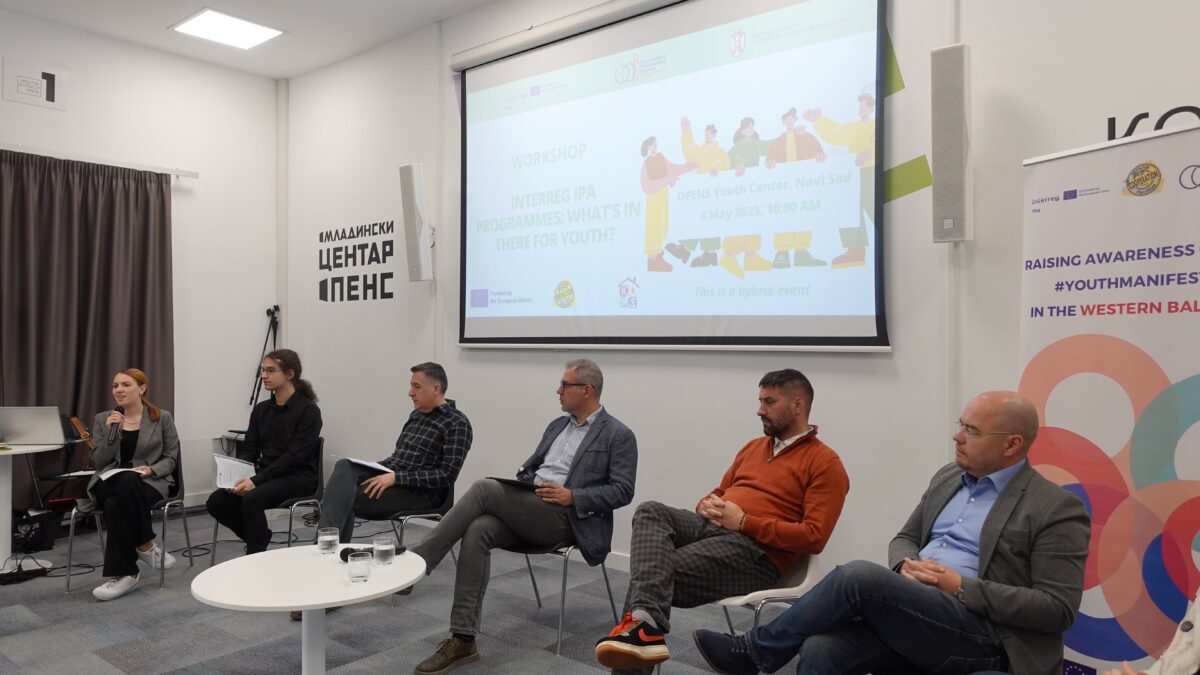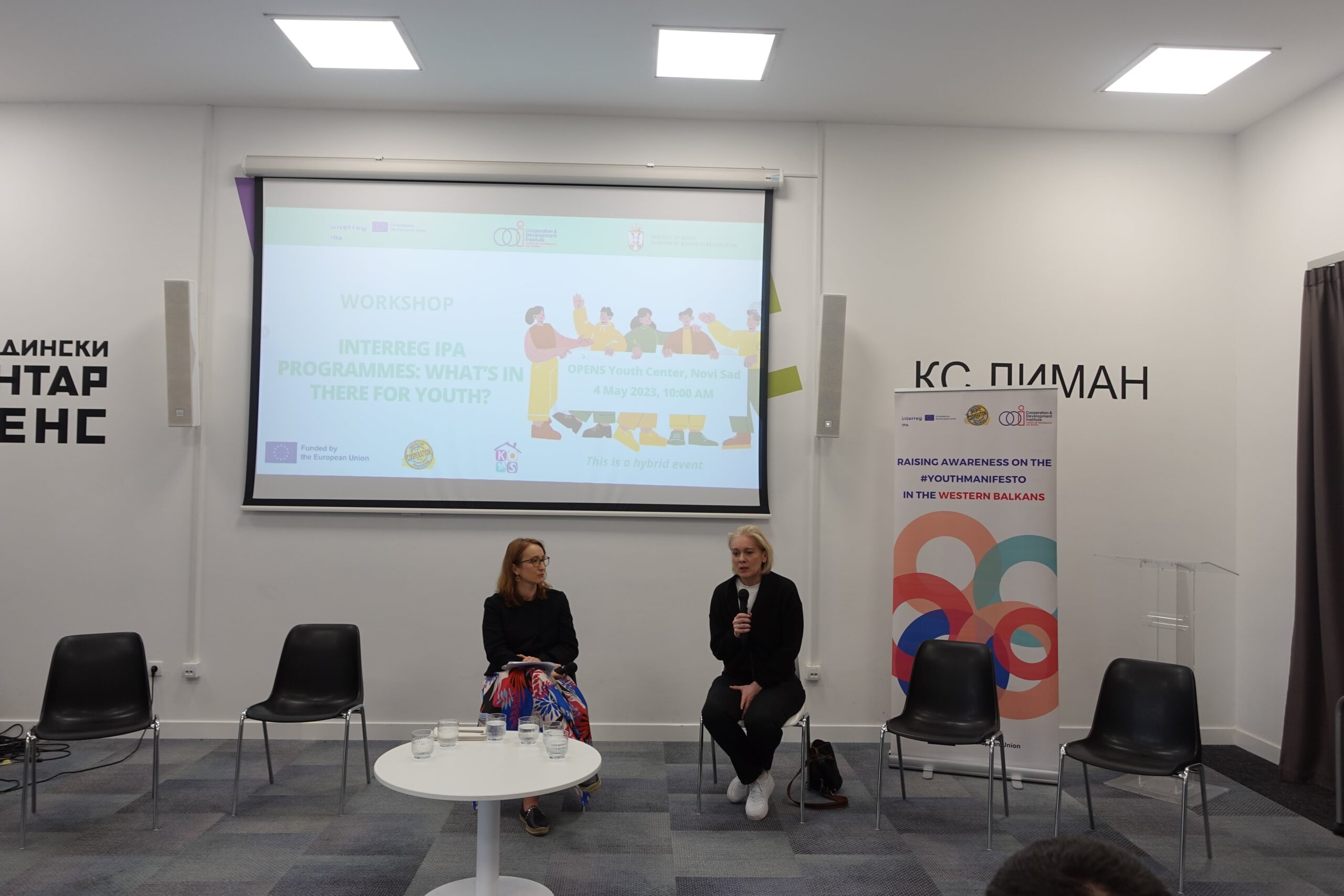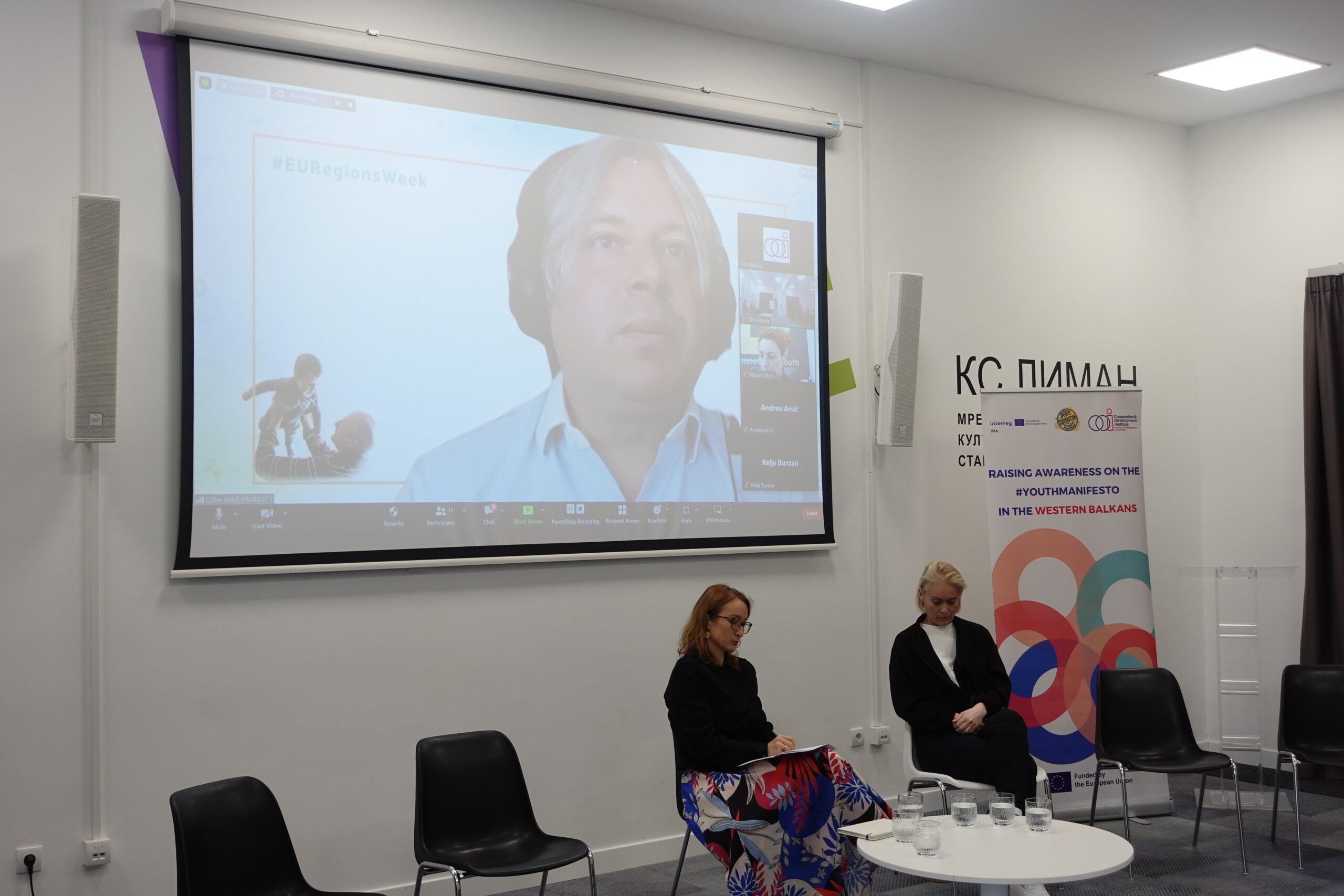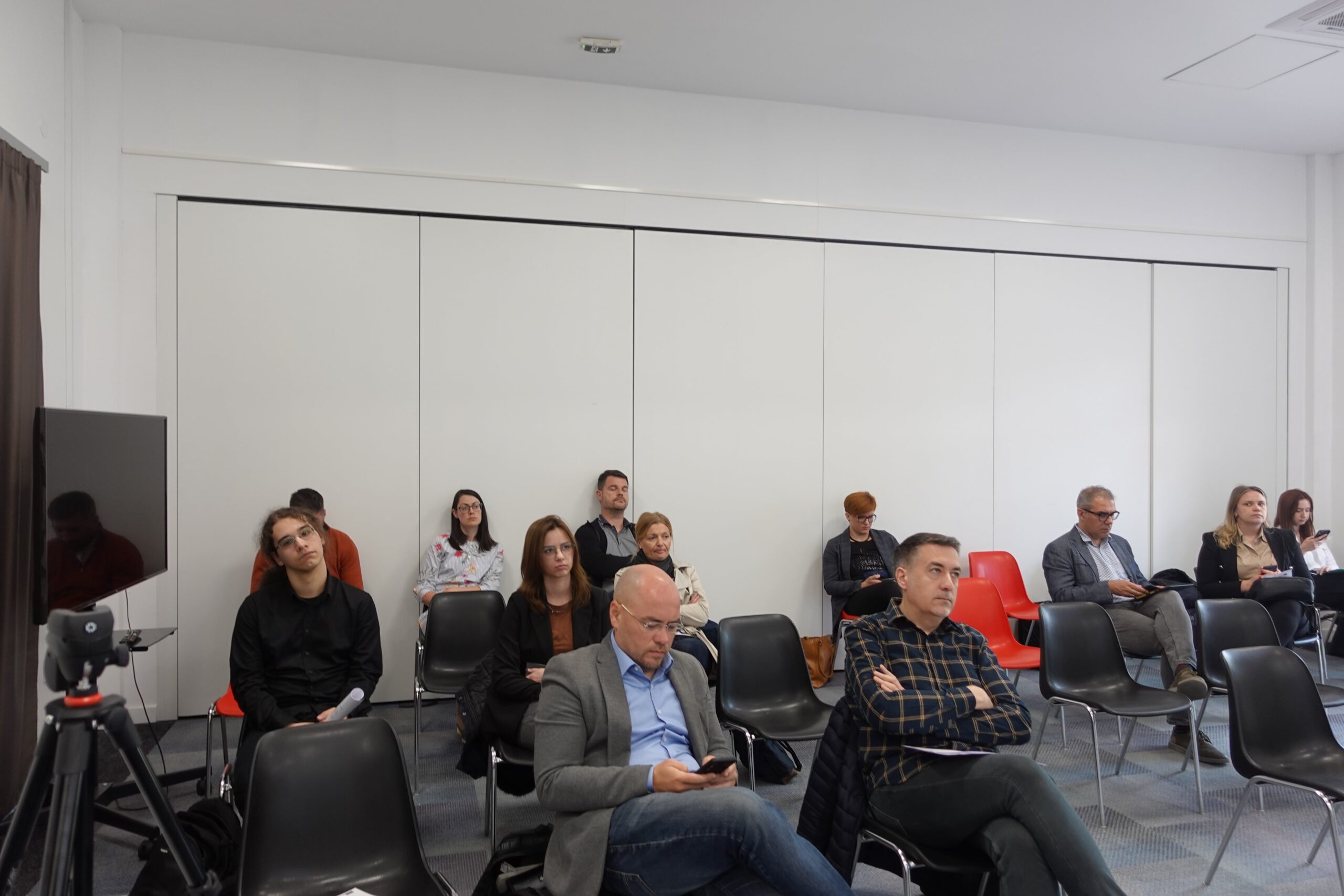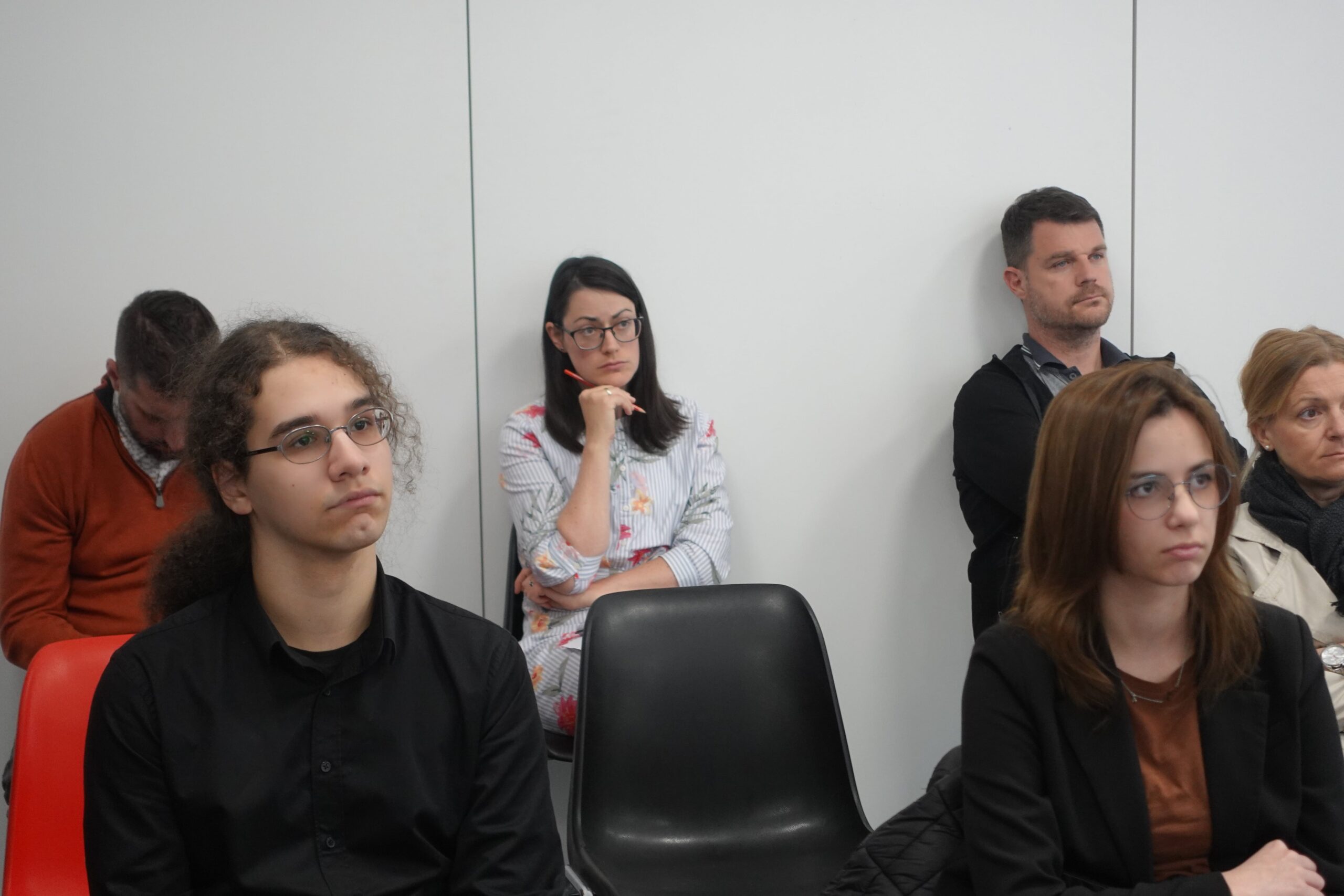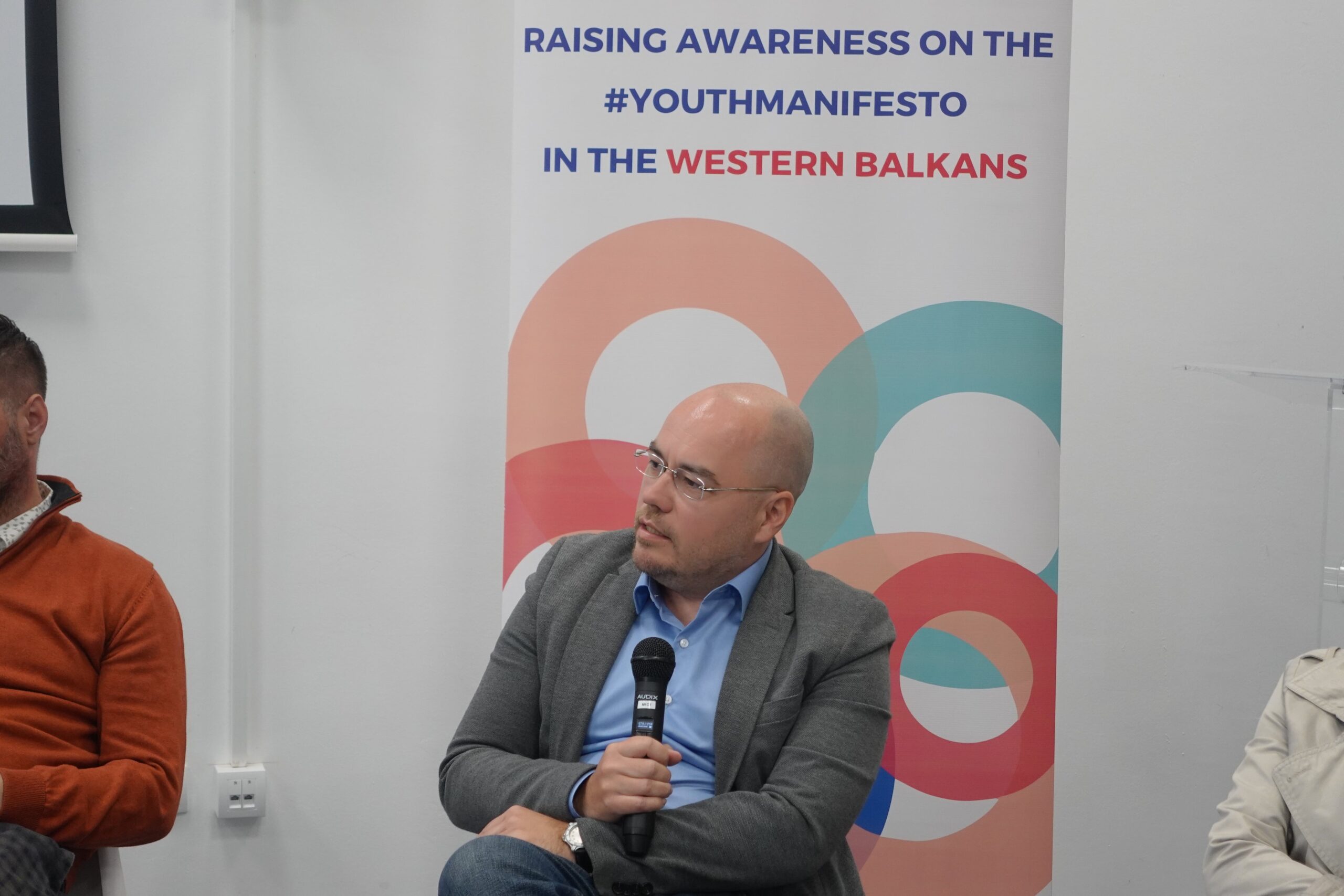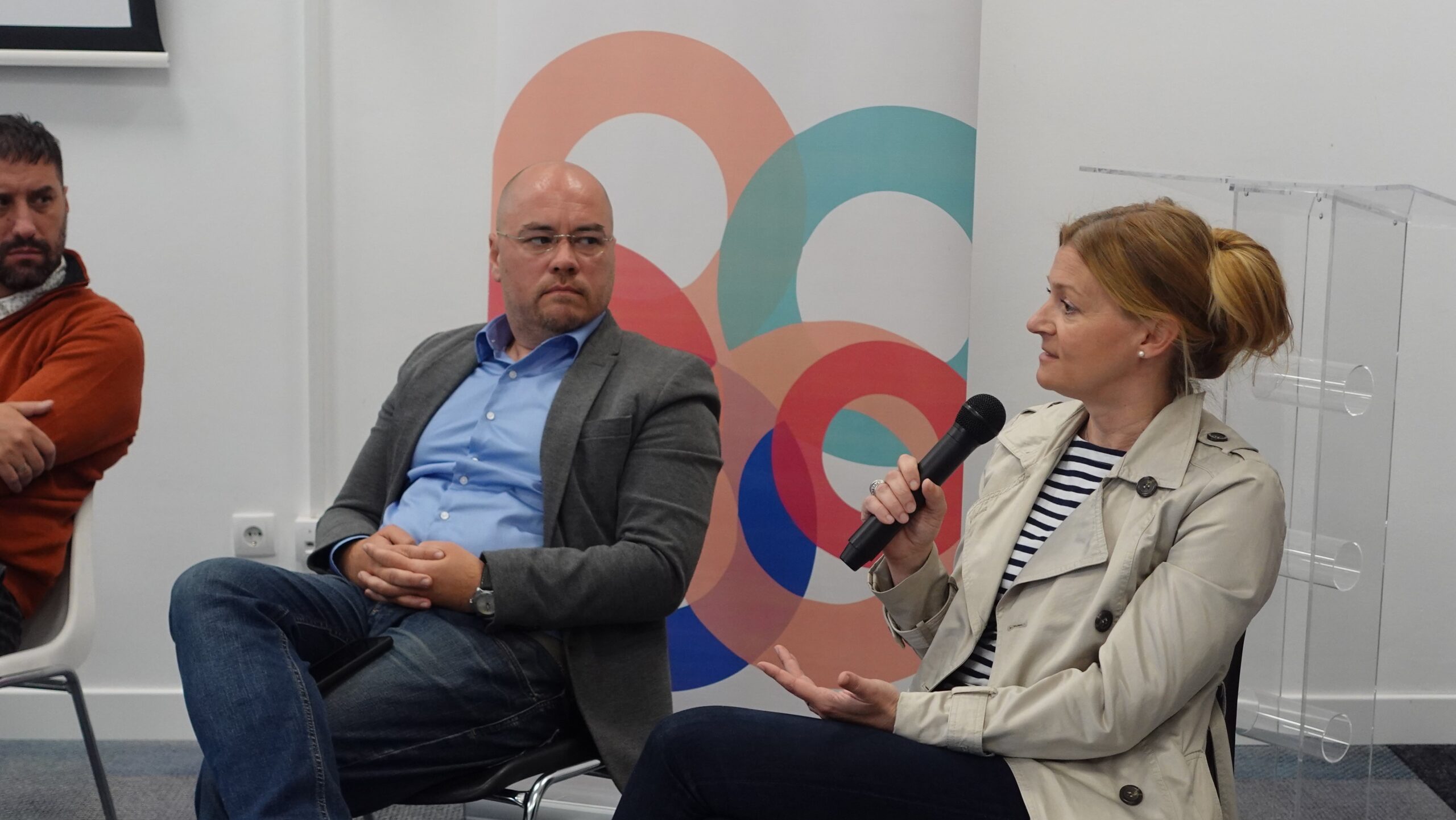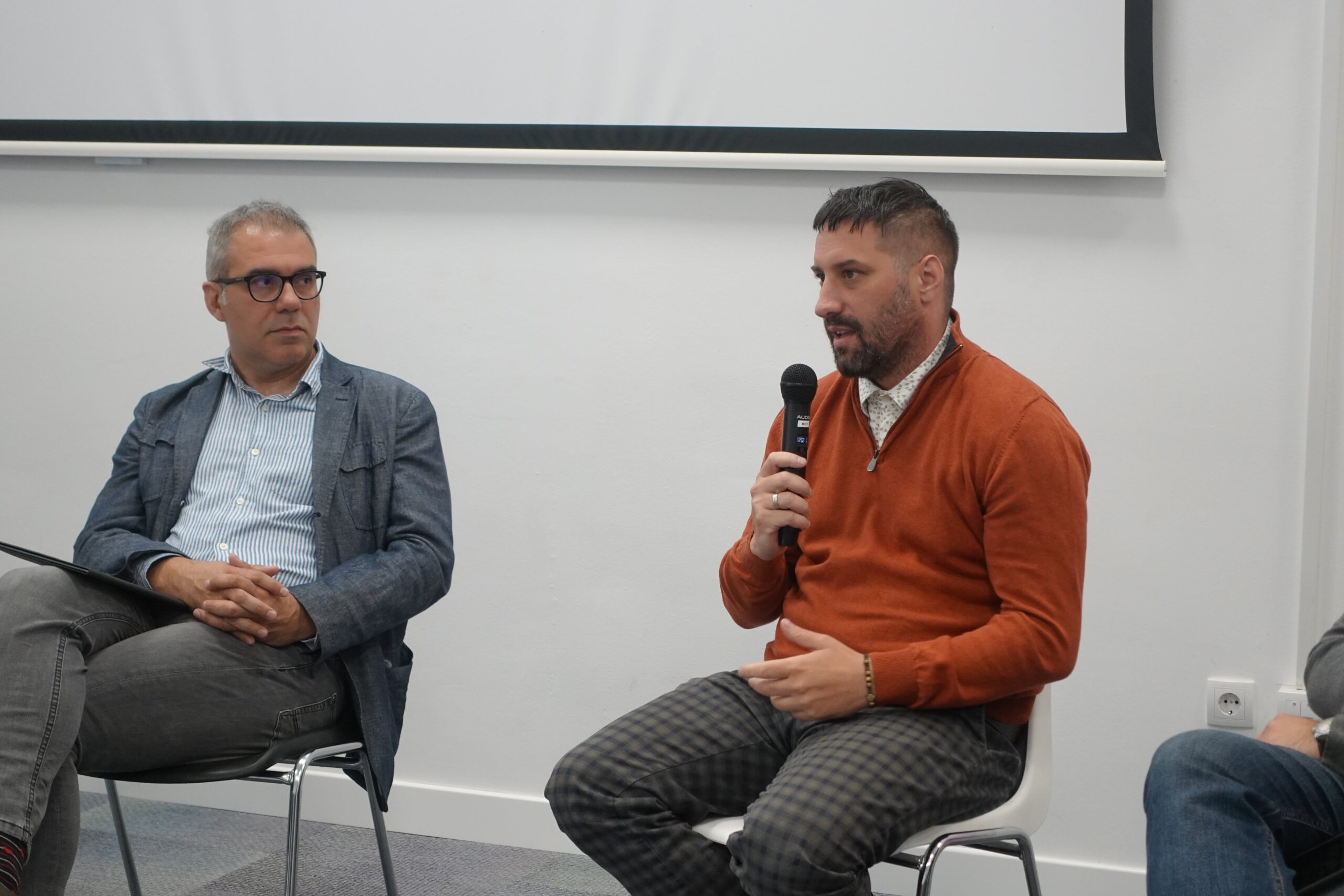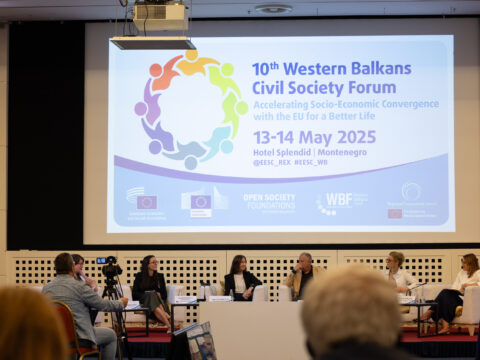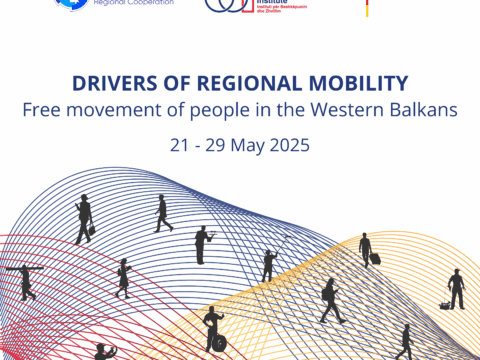4 May 2023
In the recent years Serbia has undertaken many regulatory with regard to youth policies. It starts with the adoption of the Law on Volunteering in 2010, one year later the national Law on Youth was adopted as well, which was followed by National Youth Strategy and the National Action Plan.
All these legal measures regulate and provide safe spaces for young people to actively participate in various areas of social life and simultaneously aim to address needs regarding youth policies, youth work, social and political activism, etc.
Novi Sad, a city that brings the legacy of the European Youth Capital title, awarded in 2019, was our first visit in Serbia, on 4th of May, to continue our discussions with youth regarding the ‘Youth Manifesto’ document and youth involvement in Interreg IPA programs and projects.
The workshop organized by CDI in partnership with DG Regio brought together representatives from various institutions such as the Serbian Ministry of European Integration, different Interreg programme authorities and youth organizations representatives that have implemented Interreg projects. The discussion during the workshop was focused on the role of youth as a key factor in bringing change through their committed participation not only in being part of the projects but also in getting meaningfully involved in policy making processes.
Ms. Sanda ŠIMIĆ, Assistant Minister at the Ministry for European Integration in Serbia in her opening remarks said: ‘There is no better day to talk about role of young people in the Interreg programs. We are very committed, and we are all here ready to invest and to involve youth in these programmes.’
Mr. Gilles KITTEL, Team Leader – IPA, Enlargement Negotiations and EUSAIR, DG REGIO, European Commission, followed up by emphasizing the role of youth: “We need to look forward and EU is working for the next generation. We count on youth and this is the reason why we have organized all these meetings in the region, to talk with youth, to give them the opportunities to discuss about matters that are close to their hearts. You can participate in different levels. This is also the purpose of Youth Manifesto, you can participate to help us when we are designing the programs and amendments, you can apply for projects. In the new programing period 2021-2027 we have brought some changes and simplifications such as small-scale projects that will increase the opportunities for you to apply “.
Whereas in his word Rejla BURZAN, Head of the JS Antenna, INTERREG IPA Hungary – Serbia Programme informed the participants that the program is launching the new calls for proposals. Through these calls there will be funded small, regular and large-scale projects within three priority areas: A greener region; Enhancing the human and cultural values; and Cross-border institutional and civil cooperation, with the deadline 31 of July for small and regular scale projects and 31 of October for large-scale projects.
Darko ČUKURANOVIĆ, CBC Programme Expert emphasized that in the future calls, projects that involve youth organisations will be assigned more points during the evaluation process. More concretely, the new Serbia and Bosnia Herzegovina CBC programme has a priority totally reserved for youth that of ‘Investing in youth, education and skills’ that aims to enhance youth activism and youth socio-economic participation and to increase the employability of specific groups.
Besides programme authorities, present in our workshop were different Interreg projects beneficiaries, which shared their experience and youth involvement in these projects.
What they strongly pointed out was the importance of continuity of the projects and their long-term implementation, in order to see the sustainable results of their interventions. Dušan DAKIĆ representative of “Borislav Petrov Braca” high school in Novi Sad stated that: ‘A way to fight youth indifferentism and make interesting form them to engage in Interreg projects is to ensure the continuity of the project where they have already have participated, and also enable the flexibility to slightly change objectives and activities during implementation, in order to adapt with the new identified needs, that maybe were not clear when the project proposal was written. This will build the trust in them that these projects are here to really support and address youth needs.’
PowerPoint Presentations:
More information about CDI’s engagement in “Raising awareness on the Youth Manifesto in the Western Balkans” can be found here.



